I am Adele Paterson, and I am the Chief Executive Officer of International Health Partners. I have been at the organization for 13 years. I started working with the corporate partnerships team, and became CEO four years ago.
The founder of IHP was inspired by equivalent organizations in North America that manage the middle space between healthcare companies and the delivery partners in vulnerable and disaster-hit communities.
He spent a year talking to industry leaders, presenting IHP as the solution to things like excess stock. Initially, people didnt see the benefit but when the Boxing Day Tsunami struck, the conversations changed and industry saw the need for a coordinating organization.
IHP envisions a world where nobody has to suffer because of a lack of access to medicines. Our contribution is to provide high quality, long dated and needed healthcare products.
There are a variety of reasons why people would not be able to access what they need: conflict, natural disasters, underinvestment.
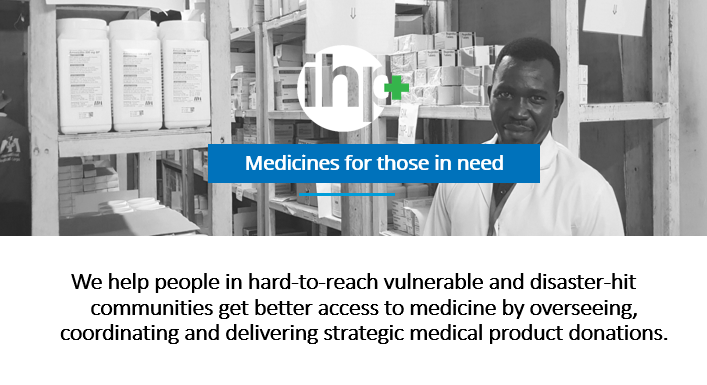
Image Credit: IHPUK
Currently, around 2 billion people worldwide do not have access to essential medicines. Why is it so important to highlight this devastating statistic and what impacts does this have on global health?
During COVID, we experienced restrictions within the supply chain and saw for a realtively hort amount of time, the very serious consequences. For the two billion people lacking access to medicines, this is a daily and chronic problem. Individuals, communities, families, and countries that cannot access the medicines that we take for granted, it means: people are not able to go to work or care for their families. Often people have to make a choice between medicines and eating.
Medicines are a big part of global health, but health is also about housing, the environment, education, training. But without the right medicines, your ability to thrive, contribute, and live a fruitful life is impaired. 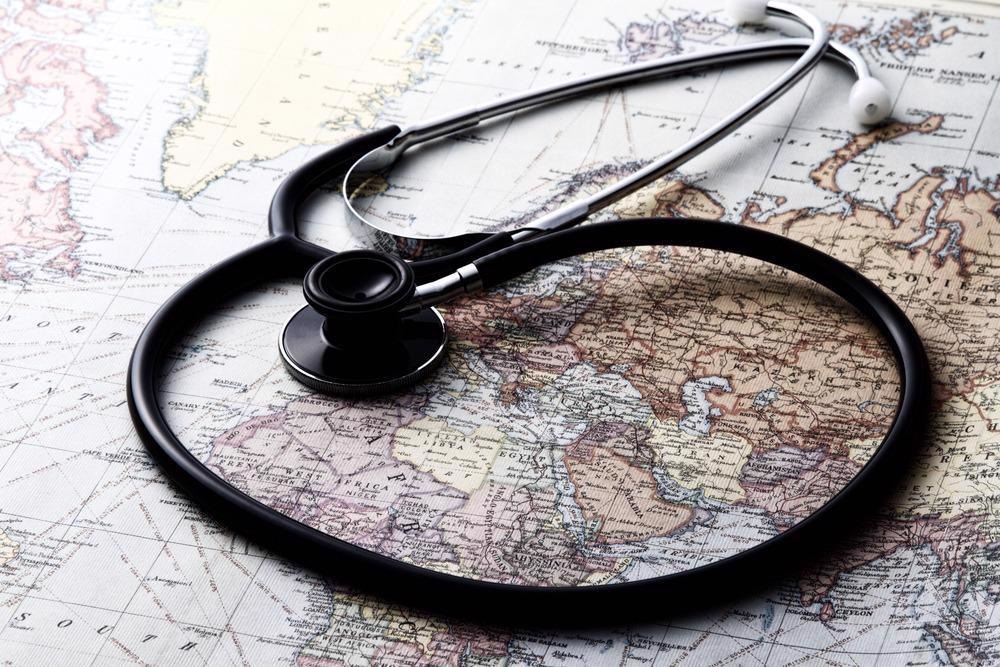
Image Credit: NOBUHIRO ASADA/Shutterstock.com
You are currently the largest coordinator of donated medical products in Europe. How are you helping to bridge the gap between healthcare companies and humanitarian organizations?
Our organization performs a niche role. We do not make medicines or healthcare products - we leave that to the healthcare companies. We do not deliver the healthcare in-country - approved in country partners are best doing this. IHP is the bridging function that connects two worlds. Companies want to donate products, but they have a huge amount of concern about what will happen to their product. Will it be used properly? What will happen in the case of a product recall? Is it being stored properly?
At the other end of the spectrum, you have organizations that want to access medicines, but they only want what they need. They want to make sure that they get products that are the right medicines, have not left the supply chain, and are not subject to counterfeiting.
What we do as an organization is to provide that bridge. We are regulated by the MHRA (Medicines Healthcare Regulatory Authority) and so we are part of the healthcare supply chain. This means that products that are received by us are products that you and I would expect to receive. They are safe, effective, long-dated, and first-quality and they will do what they are meant to do. That is a really important thing for us as we look to ensure patient safety and patient outcomes.
However, for companies, what is really important is that they are only giving their medicines to people that are able to use them and that their medicines are stored in the right way. Moving medicines is complicated. We have to do risk assessments on every shipment that we run. When you start to move into things like cold chain added to which many of the places that we're working such as South Sudan, Yemen, Syria, require specific and very particular logistical knowledge.
So we bring real technical expertise to ensure and support the work of frontline healthcare professionals who want to focus on delivering healthcare. But we also bring a level of security and support for the healthcare companies that want to make sure that their product goes beyond the obvious customer reach, and that they also are not undermined by shortcomings in the supply chain. There is a very specific bridge but a very important one.
Can you tell us more about the work you are currently involved in? How can people help to support your current work?
As you would expect, we are doing a large amount of work in Ukraine at the moment. This is a very unusual situation as we wouldn't usually work in Europe. We have had a huge amount of responses from our industry partners. As you can imagine, people are really quite motivated to ensure that people who are on the move or people who are on the front line in the country are able to access a range of different medicines.
Therefore, we are supporting partners in-country to deliver healthcare, and the main way that we are doing that currently is through our essential health packs. An essential health pack is like a portable pharmacy. We make 50 at a time with the support of DHL and Alloga.
Each of the packs contains 800 treatments. This includes around 40 different lines of medicines ranging from water purification to antifungals and antibiotics, and they're highly transportable. We are currently sending these out as the first line of response to our partners.
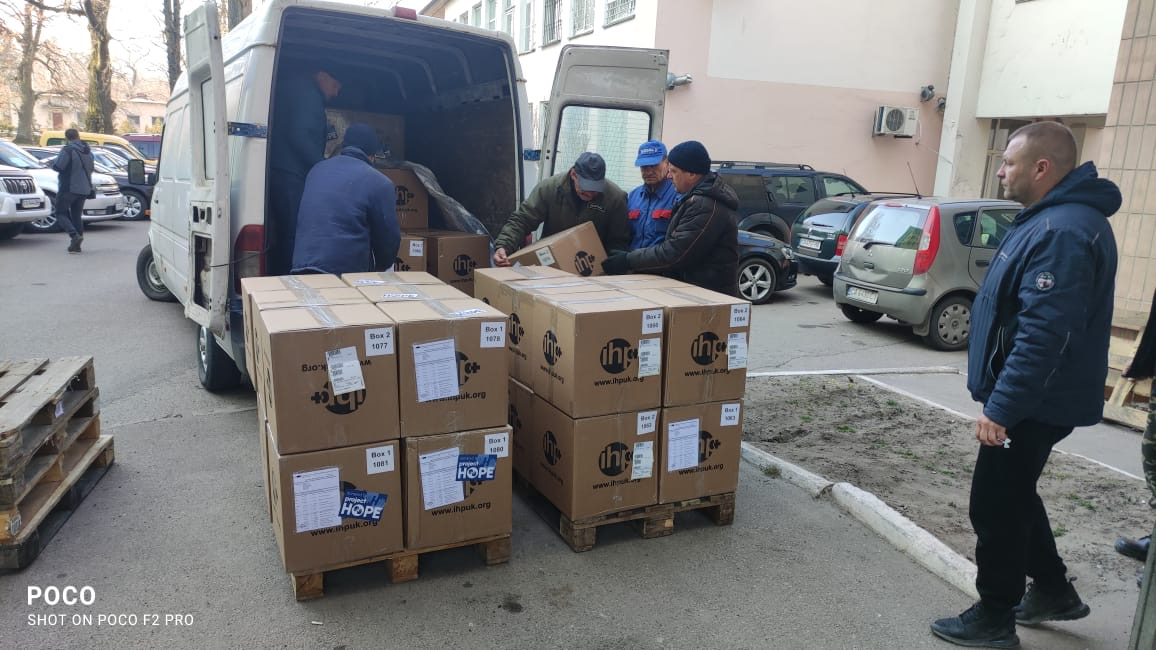
EHPs arriving in Ukraine. Image courtesy of Project HOPE
Our partners can then move them to where they're needed in-country. What we will then do is assess other needs that start to arise within the supply chain. For example, diabetes is a big concern at the moment because there was a very large factory that was destroyed in Ukraine. Chronic meds are also in need.
As well as the work that we're doing in Ukraine, we're continuing to support our partners who are working in other key areas elsewhere. This week we have also sent medicines to Somalia, Ghana, Venezuela, and Palestine. During a high profile response, other programmes can fall off the front pages so we work to ensure that all partner needs are met.
If you wanted to support, please visit our website. Companies can support with product or cash but the IHP team helps you on this journey from first conversation and idea right through to the point where you begin to say, "That was fantastic. Let's do it again."
At IHP, you also highlight women’s health. With women in low and middle-income countries more likely to face life-threatening illnesses, what more should companies, organizations, and policymakers be doing to raise awareness of these challenges? What more needs to be done globally to ensure these women have access to the correct medicines and healthcare?
I think it's fair to say that women do face a higher burden in terms of their vulnerability when there's a lack of access to medicines. For example, deaths in maternal health are unacceptably high and this is a target in the Sustainable Development Goals. We provide life-saving medicines for women who may be at risk of postpartum hemorrhage.
No one should be dependent on donated medicines and this needs to come through systemic change. Ideally, there wouldn't be a need for IHP because there are developed healthcare systems in every country - this is our dream.
The focus and collaboration that resulted in the the COVID-19 vaccines needs to be harnessed to provide universal healthcare. We have all got a contribution to make towards the end. One of the great ways that we really like working as well as in disaster response, is towards discussions that happen at a Ministry of Health level.
For example, we are currently working with a partner in the Middle East where there hasn't been comprehensive mental health provision. So we have partnered with a corporate donor and an in-country partner and we are making the case over the next three years for the need for mental health care provision to be continued. We have facilitated the product donation and the in-country partner is working to deliver that healthcare. We will also be monitoring the impact of that on those particular communities. So in the end, the Ministry of Health will know that it's worth investing in that kind of area of work. That is one really strategic way that we can use product donations, not just in a disaster situation, but to say, if you support this area of work, here's the health improvements that you are going to see.
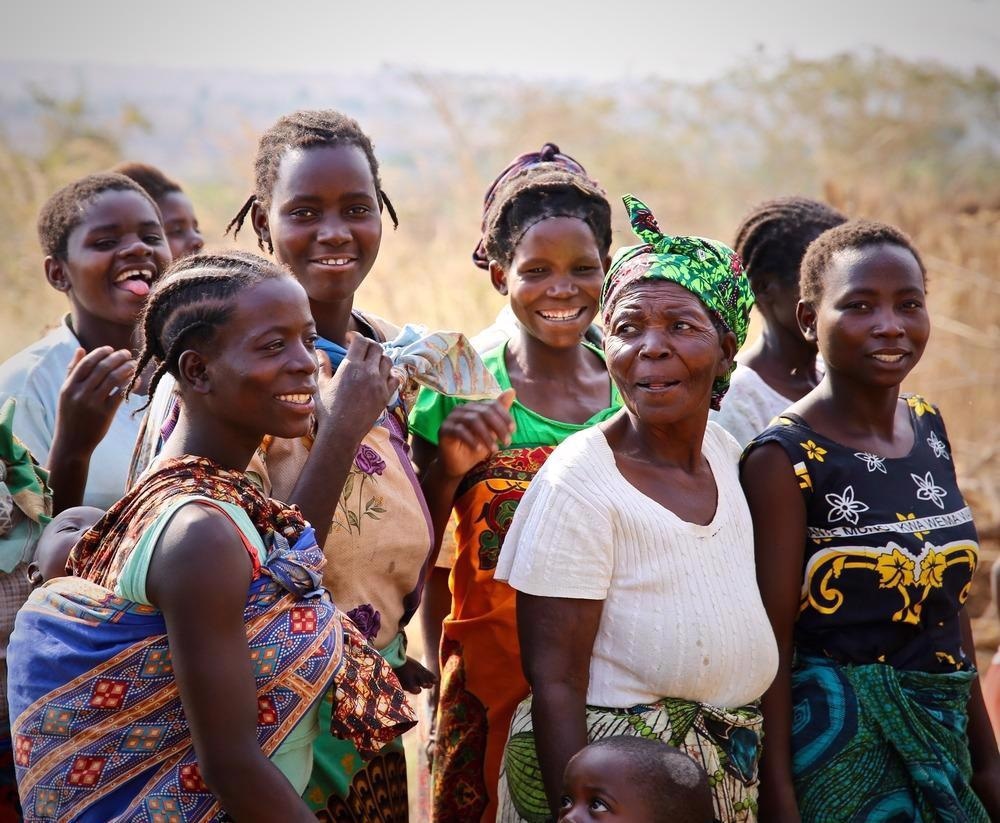
Image Credit: Oxford Media Library/Shutterstock.com
The ongoing COVID-19 pandemic has highlighted how important collaboration is in making medical and scientific advancements in an ever-changing world. How can we use lessons learned from the pandemic to tackle global health challenges worldwide? What involvement would collaboration play in this?
When we came together for one of the first industry conferences at the end of last year with the generic sector, it was great to see the collaboration and alliances formed that had led to specific responses around the COVID-19 response.
I recognized at that time that there was a level of humility and openness that perhaps there might not have been in that very highly commercial competitive sector before.
Collaboration is needed to tackle the big issues, as no one organization, funding body, or country can realize the changes that are needed to bring about something like universal health coverage.
We see bits and pieces of this all the way around the sector. There are some really great initiatives going on, but we just need to see more of this to make sure that we can get to that end. I often ask "What's my moonshot? What's the big thing that you want to do?" For me, for everyone to have access to healthcare, not just medicines, but healthcare, is my moonshot.
The Sustainable Development Goals (SDGs) have also placed a large focus on healthcare with goals specifically dedicated to poverty, good health, and reduced inequalities. How is the work you are doing at IHP helping to achieve these goals?
SDG-3 is all about health and wellbeing and that's important. So of course we're committed to that and also to tracking the contributions we make. So, as an organization, we are taking things like monitoring evaluation very seriously.
SDG-10 is around reducing inequality. If we can ensure through good healthcare that people can go to work, that means that they can bring money in to support their families, which is what everybody wants to be able to do.
SDG-12 is addressing responsible consumption and the use of resources. IHP is a service to the pharmaceutical industry so that they don't need to destroy long-dated stock that could be used. We're also focussed on partnership models, which is tackled in SDG-17. We only do what we do through partnerships. We do our bit, but we release and multiply the impact other people can make. When we talk to companies, we're often talking about things like partnerships. We have #partnershipworks. We are also talking about the ESG (Environmental, Social, and Governance) and how we can help companies reach some of those ESG targets.
Just like every other target with so many other things going on in the world, we need to keep on working to make sure that we do make the big steps forward. 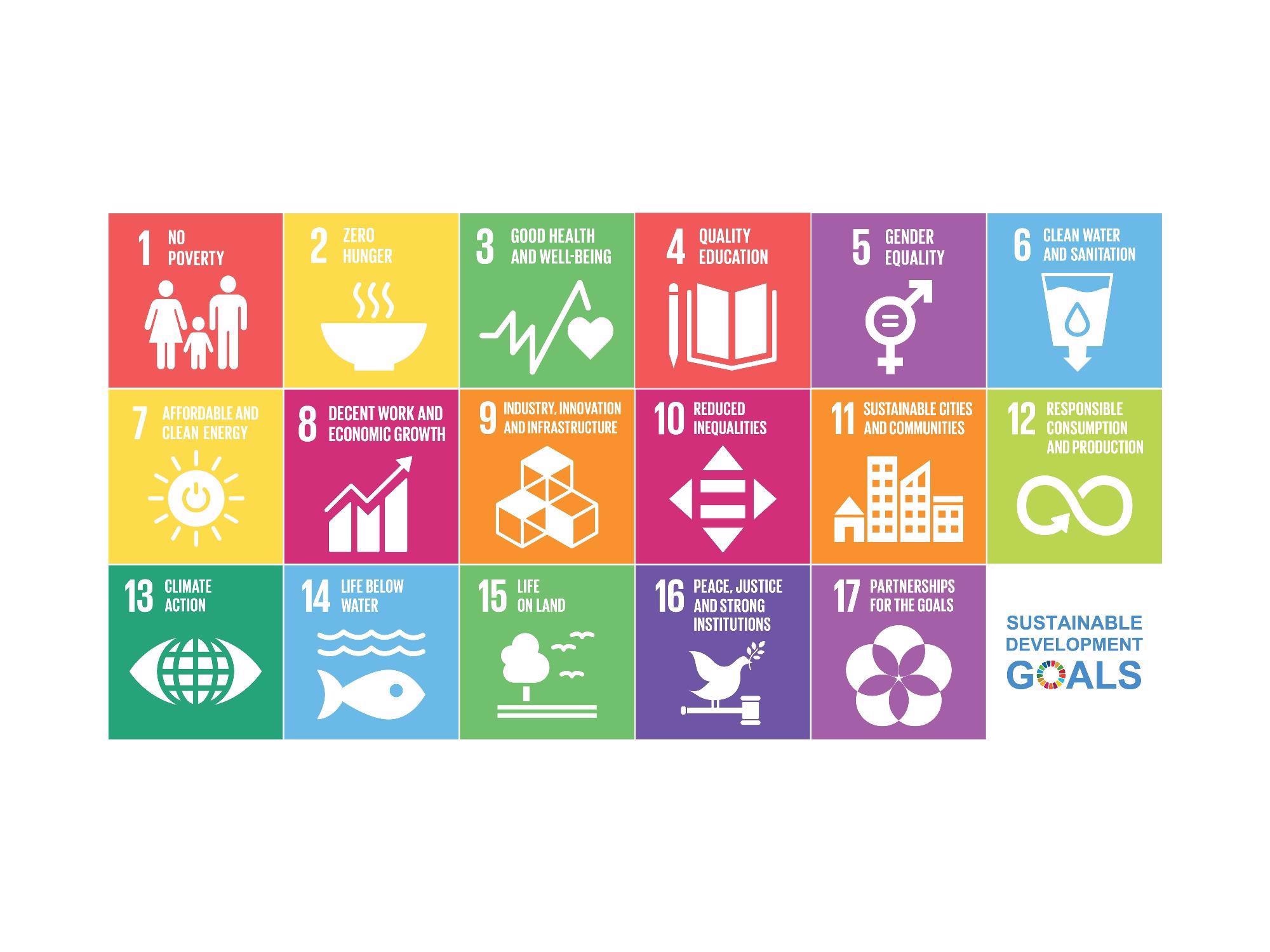
Image Credit: Artvictory/Shutterstock.com
What is next for IHP? Are you involved in any upcoming projects?
We have a technology tool that we are very excited about. We are a small organization - our team of 20 delivered 14.5 million treatments to 31 countries - so we need to be efficient. The tool that we've been using for many years now, a donations platform, is key to this. It's a one-stop shop for people who are managing product donations ensuring GDP compliance and best practice. We are now licensing that to others who are part of this product donations environment.
We are seeing the technology piece that we've developed helping much larger entities than IHP to multiply the impact of their product donations.
Where can readers find more information?
For more information about IHP visit www.ihpuk.org
About Adele Paterson
Adele Paterson joined IHP with a background in corporate partnerships, national politics, and financial communication. 
Since taking over as CEO of International Health Partners in 2017, Adele has doubled the size of the organisation and increased impact tenfold, releasing International Health Partners to become a global player through enhanced strategic, funding, and commercial partnerships.